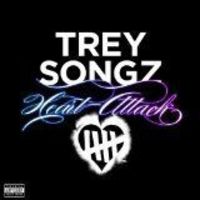 Los Angeles, CA – Plaintiffs Brandon Hale, David Biagas, and Marcus Boyd filed a copyright infringement lawsuit against Atlantic Recording Corp. and singer Trey Songz, real name Tremaine Aldon Neverson, among others. Plaintiffs claim writing a musical composition entitled “Boomerang”, which was registered with the US Copyright Office. Thereafter, Plaintiff Boyd was hired as a writer for Defendant Atlantic, but he allegedly had to submit his entire music catalog to Atlantic for evaluation. Plaintiffs then contend that Boomerang was provided to Trey Songz and/or his co-authors, who then proceeded to make a derivative work “by changing the musical key of the song and remix[ing] the song to create the infringing work ‘Heart Attack.'”
Los Angeles, CA – Plaintiffs Brandon Hale, David Biagas, and Marcus Boyd filed a copyright infringement lawsuit against Atlantic Recording Corp. and singer Trey Songz, real name Tremaine Aldon Neverson, among others. Plaintiffs claim writing a musical composition entitled “Boomerang”, which was registered with the US Copyright Office. Thereafter, Plaintiff Boyd was hired as a writer for Defendant Atlantic, but he allegedly had to submit his entire music catalog to Atlantic for evaluation. Plaintiffs then contend that Boomerang was provided to Trey Songz and/or his co-authors, who then proceeded to make a derivative work “by changing the musical key of the song and remix[ing] the song to create the infringing work ‘Heart Attack.'”
Plaintiffs contend that infringement was willful and intentional because even though the Defendants attempted to “hide their obvious use of [Plaintiffs’] composition in the infringing work by making minor changes,” the “title of the infringing work was taken from the chorus of Plaintiffs’ composition.” Based on the estimated 500,000 copies sold, Plaintiffs are demanding an accounting of Defendants’ profits and/or Plaintiffs’ actual damages or statutory damages under Section 504 of the Copyright Act, which can be as high as $150,000 per registered work in cases of willful infringement.
In addition to their copyright infringement claims, Plaintiffs assert state law misappropriation and unfair competition claims based essentially on their copyright claim:
Defendants’ conduct as alleged constitutes and continues to constitute an unlawful misappropriation of property under the laws of the State of California with respect to the exploitation and use of the Composition and Musical Work.
Upon information and belief, Defendants were aware that Plaintiff has a reasonable economic expectation arising from the Infringing Work… The conduct of each defendant as described above was unlawful, unfair or fraudulent within the meaning of California Business & Professions Code Section 17200.
The Plaintiffs should dismiss their unfair competition and misappropriation claims because they are preempted by the Copyright Act. 17 U.S.C. § 301. Where a plaintiff fails to establish that these claims are separable from his or her copyrightable work or that the state law causes of action “protect rights which are qualitatively different from the copyright rights,” the state law claims are preempted by the Copyright Act. Del Madera Prop. v. Rhodes and Gardner, Inc., 820 F.2d 973, 977 (9th Cir. 1987).
The case is Hale, et al. v. Atlantic Recording Corp. et al., CV13-03500 PSG (C.D. Cal. 2013).
 Los Angeles Intellectual Property Trademark Attorney Blog
Los Angeles Intellectual Property Trademark Attorney Blog

